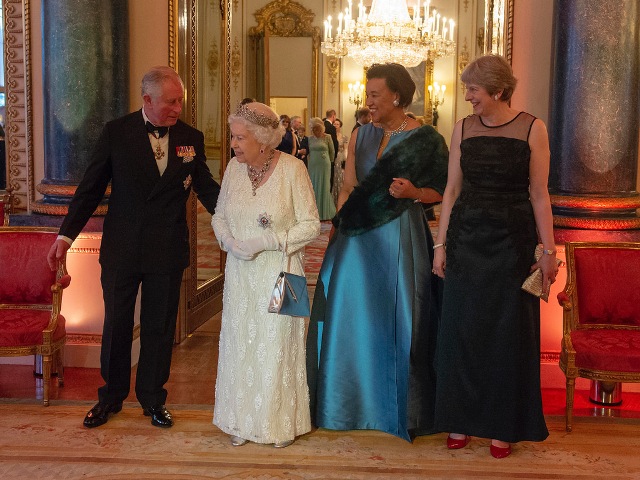 Walter Bagehot famously attributed three rights to the sovereign – to be consulted, to encourage and to warn. [Photo: CHOGM2018]
Walter Bagehot famously attributed three rights to the sovereign – to be consulted, to encourage and to warn. [Photo: CHOGM2018]
[Excerpt from an article which appears in the latest edition of The Round Table: The Commonwealth Journal of International Affairs]
A Duty to Counsel, Encourage, Warn, and Advocate Policy Positions?
The Queen’s private secretary wrote to The Times in 1986 declaring that the ‘Queen has the right – indeed the duty – to counsel, encourage and warn her government’. He added that she is entitled to express her opinions on government policy to her chief minister, but they are to be treated as entirely confidential communications between the Queen and her prime minister.
This transformation from a right to a duty is a recent phenomenon. When this ‘duty’ is regarded as one that involves urging ministers to alter government policies to conform to the personal wishes of the monarch, it is a particularly controversial development. This issue first arose publicly during the legal dispute over the freedom of information application for ‘advocacy letters’ written by the Prince of Wales to ministers. It had been argued that such advocacy of particular causes fell within a convention concerning the education of the Prince of Wales to fulfill the role of monarch, and in particular to exercise the monarch’s rights. This argument was rejected by the Upper Tribunal, which concluded that the Prince’s advocacy of certain policy views did not fall within his preparation for kingship as such behaviour fell outside the rights of a monarch to be consulted, encourage, and warn. It also recognised that Prince Charles himself had accepted that he could not behave in this way as king.
While the decision of the Upper Tribunal was not appealed by the government, the attorney-general issued a certificate which took a different view as to the role of the monarch with respect to his or her right or duty to urge policy positions on the government. The attorney-general stated in his certificate:
Discussing matters of policy with Ministers, and urging views upon them, falls within the ambit of ‘advising’ or ‘warning’ about the Government’s actions. It thus entails actions which would (if done by the Monarch) fall squarely within the tripartite convention. I therefore respectfully disagree with the Tribunal’s conclusion that ‘advocacy correspondence’ forms no part of The Prince of Wales’ preparations for kingship. I consider that such correspondence enables The Prince of Wales better to understand the business of government; strengthens his relations with Ministers; and enables him to make points which he would have a right (and indeed arguably a duty) to make as Monarch.
If the then attorney-general accurately portrayed how the role of sovereign was being fulfilled in practice behind the palace doors, and the sovereign really does lobby ministers and urge them to change policies to accord with his or her personal preferences (rather than simply warning and encouraging them to behave in a manner that is legal, constitutional, and in accord with proper procedure, as is the practice at the viceregal level), there is a yawning chasm between practice and the publicly accepted role of the sovereign which was reflected in and upheld by the findings of the Upper Tribunal. It is also notable that the commencement of this litigation sparked the enactment of an absolute ban on access through the National Archives or freedom of information to government documents that relate to communications with the monarch or the next two persons in line to the throne for the term of their respective lives plus five years. This ensures that, as in Bagehot’s time, it is not possible to assess accurately the current role of the monarch and how the British constitution operates in practice.
The Limits of Influence and Power
Bogdanor correctly observed that the ‘essence of Bagehot’s argument is that the wise use of influence will obviate the need for the use of the prerogative powers’. To this extent, Bagehot’s analysis rings true today. While the Queen retains significant power, it is primarily exercised by way of influence before final decisions are made. This averts any need to exercise her reserve powers to act without, or contrary to, ministerial advice. The existence of those reserve powers, nonetheless, remains essential to the effectiveness of the sovereign’s personal influence. Today it is less the sovereign’s social superiority that is likely to trouble a prime minister’s mind than the sovereign’s underlying constitutional power and the public’s support for the sovereign, which is often much greater than that of the prime minister. While the cardinal convention requires the sovereign and her vice-regal representatives to act upon the advice of responsible ministers, other than when exercising a reserve power, there is a degree of latitude in determining when the advice of ministers is final and must be obeyed. Lord Esher, in advising King George V, observed that:
If the Sovereign believes advice to him to be wrong, he may refuse to take it, and if his minister yields the Sovereign is justified. If the minister persists, feeling that he has behind him a majority of the people’s representatives, a constitutional Sovereign must give way.
The difficulty lies in ascertaining the point at which the sovereign must give way and how far he or she may go in terms of the initial refusal to act upon advice.



